Living a zero-waste lifestyle might sound like a lofty goal to most people.
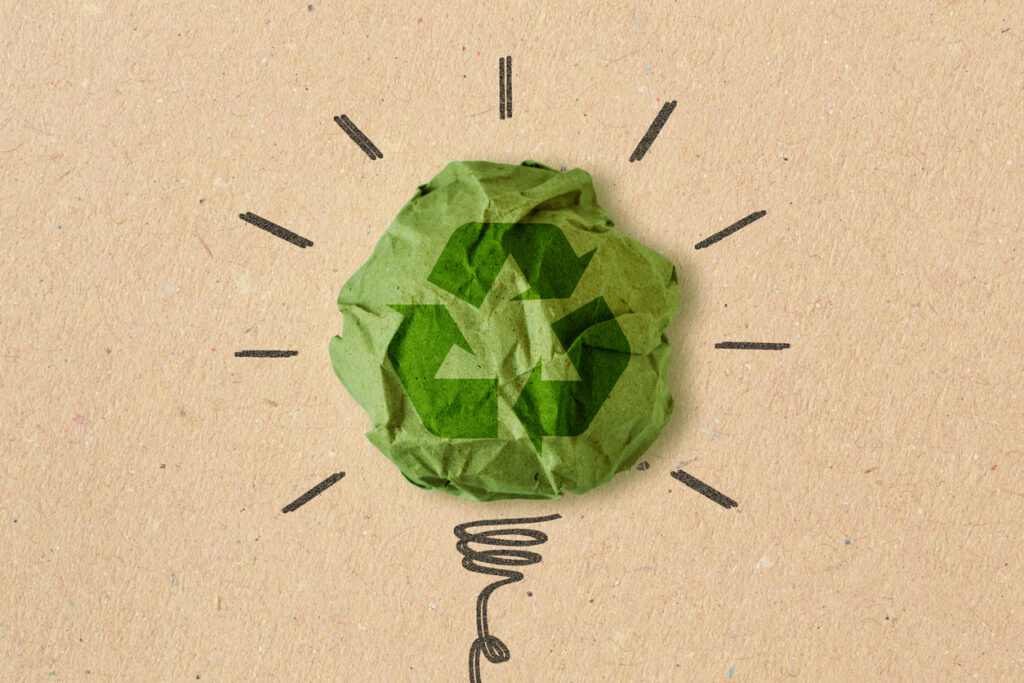
However, it’s really just about making better choices—ones that create less rubbish and more sustainability in your everyday life. You don’t have to fit all your waste into a jam jar to make a difference. Whether you’re just starting out or already have a tote bag stash under the stairs, these ideas can help cut your waste without turning your routine upside down.
1. Choose reusables over disposables.

It sounds simple, but switching from single-use to reusable items is one of the most impactful changes you can make. Think water bottles, coffee cups, cutlery sets, beeswax wraps, and cloth napkins. They reduce waste instantly and save you money over time.
Once you get used to having your reusables on hand—whether it’s in your work bag, car, or kitchen drawer—it becomes second nature. Plus, you’ll never have to suffer through flimsy plastic cutlery or soggy takeaway coffee lids again.
2. Buy in bulk when you can.
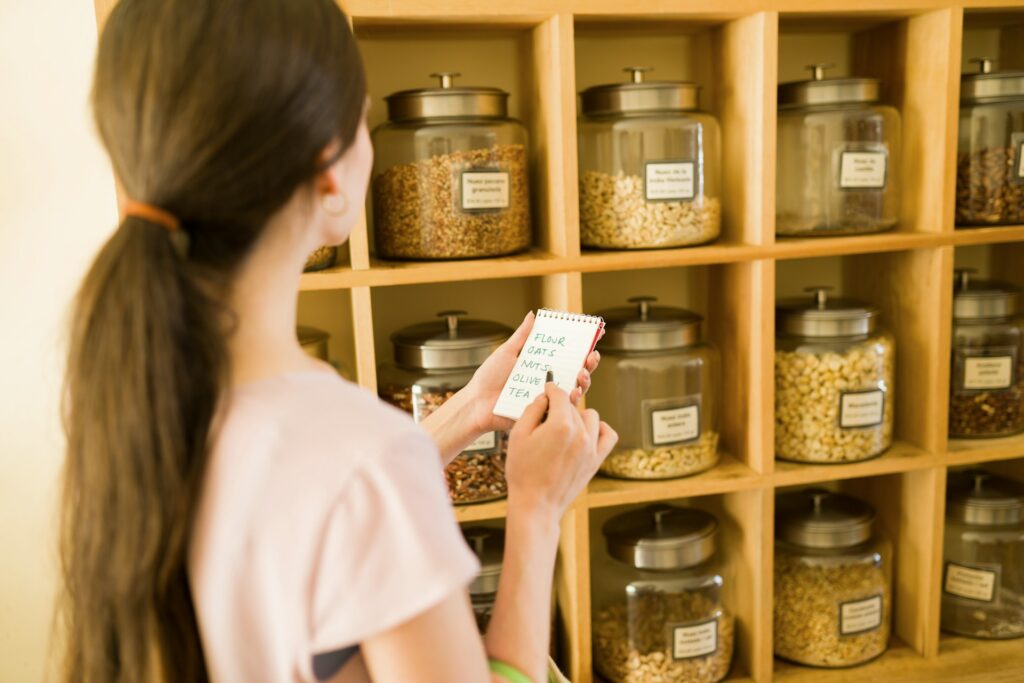
Buying in bulk isn’t just for people with massive pantries. Many refill shops and eco-stores across the UK let you top up things like rice, pasta, herbs, and even washing-up liquid without the packaging. Bring your own jars or containers and avoid all the plastic wrap. Even if you don’t live near a refill shop, buying larger portions of staples from local shops or farmers markets can reduce packaging waste. It’s about buying smarter, not more.
3. Switch to solid bars.

From shampoo and conditioner to dishwashing and body soap, solid bars are having a comeback—and with good reason. They last longer, come in minimal or no packaging, and usually skip the harsh chemicals. Most brands now offer versions that suit every hair type or skin sensitivity, and they’re travel-friendly too. No more faffing with mini bottles or worrying about leaks in your bag.
4. Rethink your cleaning products.

So many household cleaners come in plastic bottles that get binned the minute they’re empty. Try switching to reusable spray bottles and buying refill tablets or concentrates instead. They take up less space, cut down on packaging, and often cost less over time. You can also make your own with vinegar, bicarb, and lemon juice—it sounds very “1970s housewife,” but it works. Plus, your house won’t smell like chemicals, which is a bonus.
5. Shop second-hand whenever possible.

From clothes to furniture to electronics, choosing pre-loved items means giving things a second life instead of fuelling demand for new manufacturing. Charity shops, vintage markets, online swaps, and Facebook Marketplace are all treasure troves. Not only does it reduce landfill waste, but it often leads to more unique, better-made finds. Plus, there’s something incredibly satisfying about scoring a great item for a fraction of the original price.
6. Compost your food scraps.
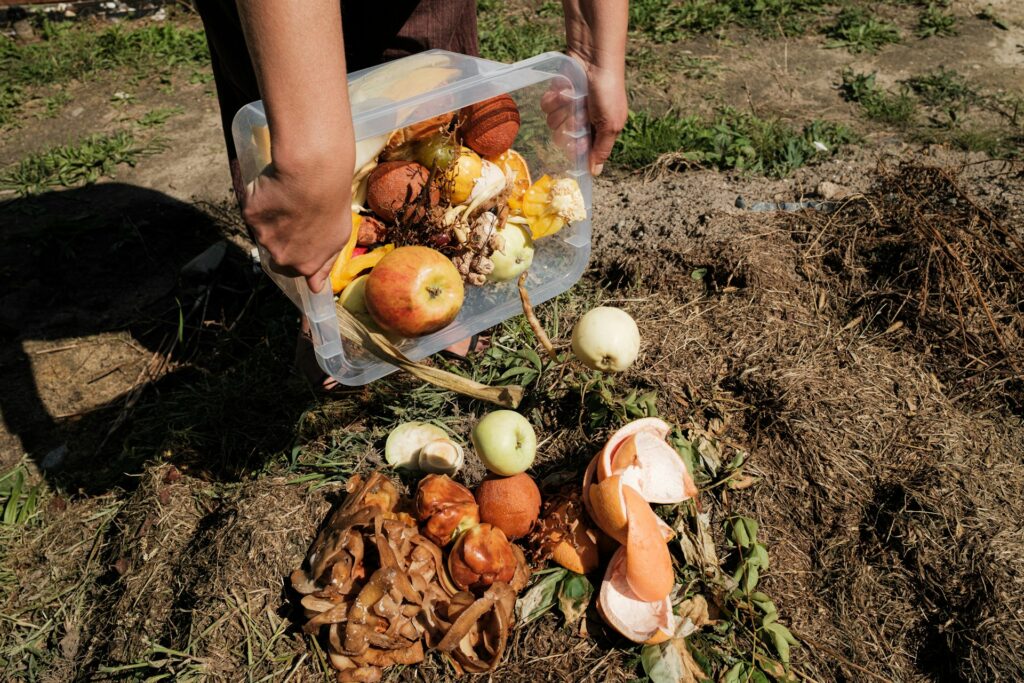
Roughly 30% of UK household waste is food, most of which could be composted. If you have a garden, starting a compost bin is easier than you’d think. Even if you don’t, many councils now offer food waste collections or local composting schemes. Composting turns leftovers and peelings into nutrient-rich soil instead of methane-producing landfill waste. It’s a win for your garden and the planet—without much effort on your part.
7. Repair instead of replacing.
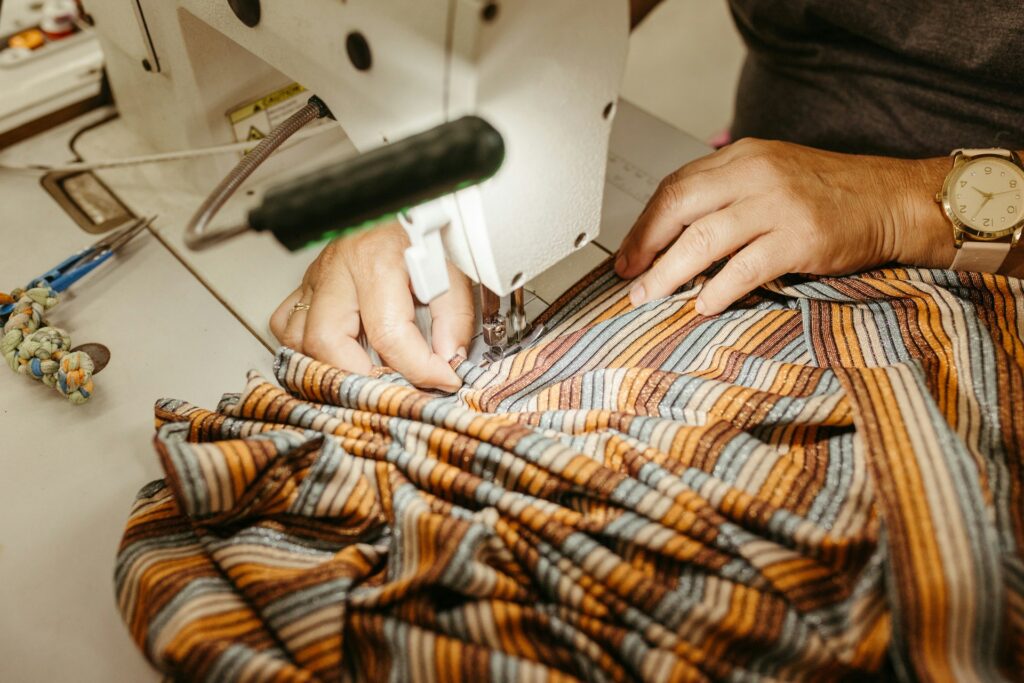
We’re quick to throw out items at the first sign of wear, but many things can be mended. Clothes with missing buttons, a lamp with a dodgy wire, or even a wobbly table—most of it just needs a little patience and a YouTube tutorial. There are also repair cafes popping up around the UK, where volunteers help you fix things for free. It brings a bit of pride and practicality back into how we treat our belongings.
8. Ditch plastic produce bags.
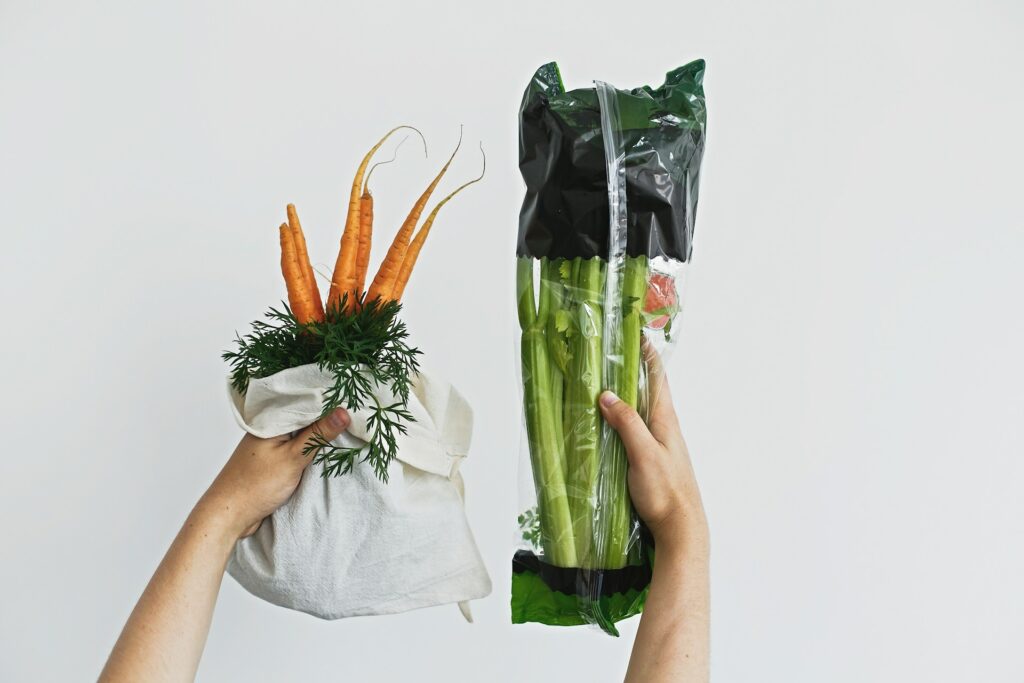
Those flimsy plastic bags in supermarkets add up fast. Instead, bring your own mesh or cloth produce bags for fruit and veg. They’re washable, lightweight, and make unpacking your shopping that little bit less wasteful. Better yet, shop at local greengrocers or markets, where packaging is often minimal and prices are fair. You get fresher food, support small businesses, and avoid the pointless wrap on cucumbers.
9. Go digital where it makes sense.

Bills, bank statements, tickets, and even recipe books—if you can get them online, it’s one less thing to print, post, and eventually throw away. Opting for digital subscriptions or using your phone instead of paper tickets adds up over time. Of course, some things feel better in print (no judgement if you still love a physical book), but making small digital swaps where possible cuts down waste without losing convenience.
10. Plan meals and reduce food waste.

Meal planning isn’t just for fitness influencers. Knowing what you’re going to cook helps you shop more intentionally and avoid food going off in the back of the fridge. Use a simple list and plan for leftovers—it saves time, money, and bin space. It also helps you eat more seasonally and avoid falling into the trap of impulse buys, which often come heavily packaged and overpriced. A bit of planning upfront saves a lot of waste down the line.
11. Say no to freebies.

How many pens, leaflets, or tote bags have you accepted only to never use again? Freebies can be tempting, but if it’s not something you actually need, it’s okay to just say no. It helps reduce clutter and stops those items from becoming instant landfill. Zero-waste living also means reducing demand—not just recycling what’s already there. Being mindful about what you allow into your life is half the battle.
12. Keep a ‘to-go’ kit.
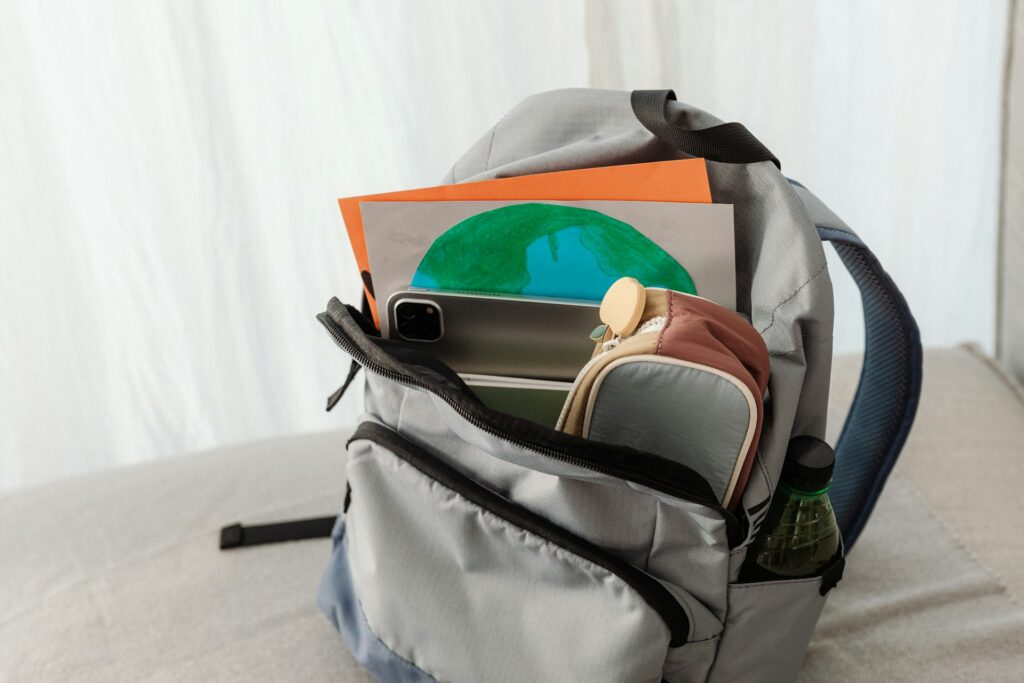
One of the easiest ways to avoid waste is simply being prepared. A small kit with a reusable bottle, container, cutlery set, and shopping bag can save you from grabbing plastic versions when you’re out and about. You don’t have to be perfect—it’s about having tools that make lower-waste choices easy and convenient. And once it becomes part of your daily grab-and-go routine, you’ll wonder how you ever lived without it.